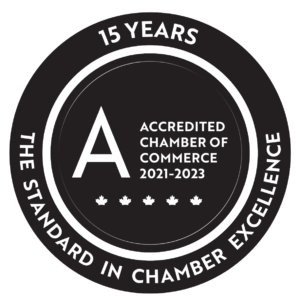FROM THE GOVERNMENT OF CANADA NEWSROOM:
News release
February 4, 2022 – Ottawa, Ontario – Department of Finance Canada
Canada’s strong and essential social safety net is built on a robust national tax base.
The Department of Finance Canada today released for public comment a set of draft legislative proposals to implement previously announced and other tax measures.
Specifically, the proposals would implement Budget 2021 measures to:
- Allow for the immediate expensing of up to $1.5 million of eligible investments by Canadian-controlled private corporations, sole proprietors and certain partnerships to help businesses invest in new technologies and move forward with capital projects, as further detailed in the backgrounder Expansion of the Eligibility for Tax Support for Business Investments;
- Reduce—by 50 per cent—the general corporate and small business income tax rates for businesses that manufacture zero-emission technologies;
- Expand access to the accelerated capital cost allowance for certain clean energy equipment and implement certain restrictions;
- Improve access to the Disability Tax Credit;
- Include postdoctoral fellowship income in “earned income” for Registered Retirement Savings Plan (RRSP) purposes;
- Enhance Canada’s income tax mandatory disclosure rules, as further detailed in the backgrounders Mandatory Disclosure Rules and Income Tax Mandatory Disclosure Rules Consultation: Sample Notifiable Transactions;
- Increase flexibility for plan administrators of defined contribution pension plans to correct for both under-contributions and over-contributions;
- Improve the fairness of certain taxes applicable to Registered Investments;
- Improve administration of, and compliance with, electronic filing and certification of tax and information returns;
- Temporarily extend certain timelines for the Canadian Film or Video Production Tax Credit (CPTC) and the Film or Video Production Services Tax Credit (PSTC);
- Combat the avoidance of tax debts through complex transactions that attempt to circumvent the tax debt collection avoidance rule;
- Ensure that the Canada Revenue Agency (CRA) has the authority it needs to conduct audits and undertake other compliance activities; and
- Limit the amount of interest and other financing expenses that businesses may deduct for income tax purposes based on a proportion of earnings.
The draft proposals would also implement measures announced in previous budgets to:
- Enhance the tax reporting requirements for trusts in order to improve the collection of beneficial ownership information; and
- Update rules that address tax planning relating to allocations to redeeming fund unit holders in the mutual fund industry.
Draft proposals would address an error in the current law for the COVID-19 GST Credit Top-up so that it is consistent with the original intent of the measure as announced in March 2020 by the Government of Canada and how it has been administered by the CRA. In addition, draft proposals would ensure the proper functioning of the revocation tax with respect to organizations that have their registration as a charity revoked due to being listed as a terrorist entity.
To clarify the GST/HST treatment of crypto asset mining, draft proposals would specify that crypto asset mining would generally not be considered a “supply” for GST/HST purposes. This would mean that the GST/HST would not apply to the provision of crypto asset mining and input tax credits would not be available to the person providing the mining.
Note that references to “Announcement Date” in the draft proposals, and the accompanying explanatory notes, refer to February 4, 2022. In addition to draft legislative proposals, sample notifiable transactions are detailed in the backgrounder Income Tax Mandatory Disclosure Rules Consultation: Sample Notifiable Transactions for the measure relating to mandatory disclosure rules.
Canadians are invited to provide comments on these draft proposals and the sample notifiable transactions. Please send your comments to [email protected].
Submissions on the following measures should be received by April 5, 2022:
- Taxes applicable to Registered Investments;
- Mandatory Disclosure Rules;
- Avoidance of Tax Debts;
- Audit Authorities;
- Reporting Requirements for Trusts;
- Mutual Funds: Allocation to Redeemers; and
- Crypto Asset Mining.
Submissions specifically relating to the Interest Deductibility Limitation measure will be accepted until May 5, 2022.
Submissions on all other measures should be received by March 7, 2022.
Backgrounder
Immediate expensing of up to $1.5 million per year
Budget 2021 included proposals to provide temporary immediate expensing in respect of certain property acquired by a Canadian-Controlled Private Corporation (CCPC).
This immediate expensing would be available for “eligible property” acquired by a CCPC on or after April 19, 2021, and that becomes available for use before January 1, 2024, up to a maximum amount of $1.5 million per taxation year. The immediate expensing would only be available for the year in which the property becomes available for use. The $1.5 million limit would be shared among associated members of a group of CCPCs. The limit would be prorated for taxation years that are shorter than 365 days. The half-year rule would be suspended for property for which this measure is used. For those CCPCs with less than $1.5 million of eligible capital costs, no carry-forward of excess capacity would be allowed.
Eligible property under this new measure would be capital property that is subject to the capital cost allowance (CCA) rules, other than property included in CCA classes 1 to 6, 14.1, 17, 47, 49 and 51, which are generally long-lived assets.
CCPCs with capital costs of eligible property in a taxation year that exceed $1.5 million would be allowed to decide to which CCA class the immediate expensing would be attributed and any excess capital cost would be subject to the normal CCA rules. The availability of other enhanced deductions under existing rules – such as the immediate expensing for manufacturing and processing machinery and equipment and for clean energy equipment, introduced in the 2018 Fall Economic Statement – would not reduce the maximum amount available under this new measure. Furthermore, the immediate expensing would not change the total amount that can be deducted over the life of a property.
Expanding eligibility to a broader range of taxpayers
The government is proposing to expand eligibility for the $1.5 million temporary immediate expensing measure to investments in eligible property made by unincorporated businesses carried on directly by Canadian resident individuals (other than trusts) and certain eligible partnerships. This measure would be effective for investments made on or after January 1, 2022 that become available for use before 2025 (in the case of an individual or a partnership all the members of which are individuals) or before 2024 (for other partnerships).
Eligible partnerships would include those in which the totality of the members (at all times in the relevant taxation year) would otherwise have been eligible to benefit from the measure had they carried on the business of the partnership directly. Multi-tiered partnerships (i.e., partnerships with other partnerships as members) would be excluded.
The limit of $1.5 million would be subject to rules to protect the integrity of the tax measure as well as to ensure that the limit is adhered to by each proprietor, partnership, partnership member, and each of their respective economic groups.
Technical amendment to Class 10.1
As a general rule, the proceeds from the disposition of a depreciable property in a particular CCA class must be deducted from the undepreciated capital cost of property of that class.
If at the end of a taxation year the deduction of the proceeds of disposition from the undepreciated capital cost results in a negative balance for the class, this negative amount must generally be included in the taxpayer’s income for the year. Conversely, if at the end of a taxation year a taxpayer has no more property in a class but has a positive balance for the class, this positive amount may generally be deducted from the taxpayer’s income for the year. This rule does not apply to passenger vehicles included in Class 10.1.
When immediate expensing was introduced in Budget 2019 for zero-emission vehicles, the associated CCA Class (Class 54) included a special recapture rule in order to address the potential for excessive CCA deductions while also recognizing the impact of the capital cost limit on allowable deductions. Given the recently proposed immediate expensing measure, a parallel change for passenger vehicles included in Class 10.1 will be introduced where the vehicle has been designated for immediate expensing.
Specifically, a special rule would apply to adjust the proceeds of disposition to be deducted from the undepreciated capital cost of the property on the disposition of such a vehicle. Under this rule, the proceeds of disposition would be adjusted based on a factor equal to the capital cost limit ($34,000, for vehicles acquired on or after January 1, 2022) as a proportion of the actual cost of the vehicle. Where the vehicle is not designated for immediate expensing treatment, the ordinary CCA and recapture rules for Class 10.1 property would continue to apply. The proposed technical amendment would be effective retroactively for passenger vehicles purchased on or after April 19, 2021.




